15 Easy SEO Tips for Higher Rankings
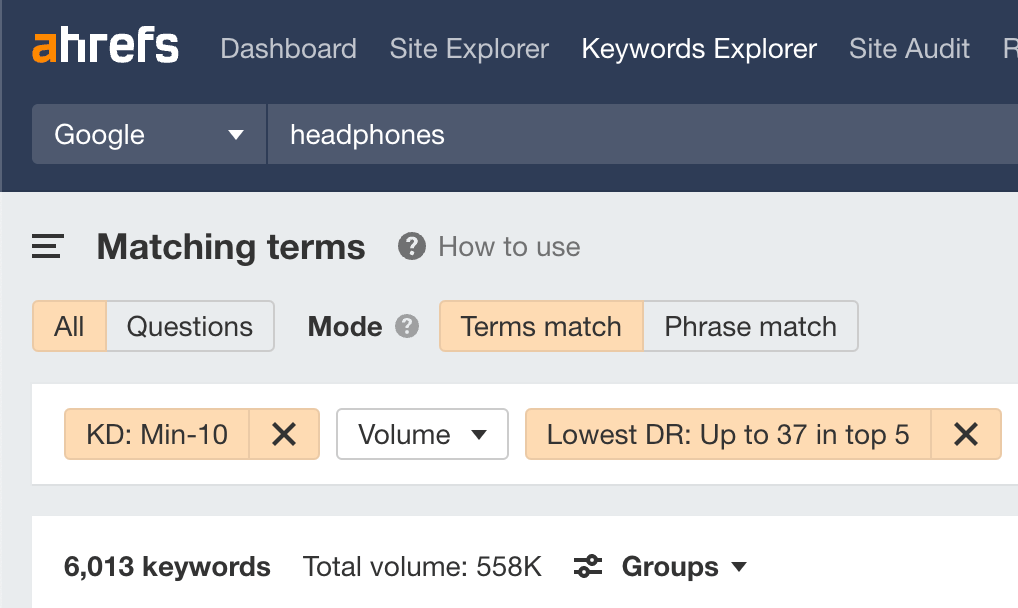

If you want more traffic to your website from search engines, you need to rank higher for keywords that people are searching for.
Below are a few simple SEO tips to help you do that.
1. Rank faster by picking easier keywords
Many things affect ranking difficulty. But if you see pages from similar caliber sites in the top five with few backlinks, that’s usually a sign of a keyword that’s easy to rank for.
Here’s how to find these keywords:
- Go to Ahrefs’ Keywords Explorer- Enter a broad topic
- Go to the Matching terms report
- Set the Keyword Difficulty (KD) filter to ≤10
- Set the “Lowest DR” filter (top 5) to your site’s DR (you can check this in Site Explorer)
For example, the top-ranking page for “ski helmet headphones” has one website linking to it and lives on a DR 19 website:
 " data-srcset="https://www.leadbuildermarketing.com/wp-content/uploads/2023/06/image4-7.png 1642w, https://ahrefs.com/blog/wp-content/uploads/2023/06/image4-7-680x114.png 680w, https://ahrefs.com/blog/wp-content/uploads/2023/06/image4-7-768x129.png 768w, https://ahrefs.com/blog/wp-content/uploads/2023/06/image4-7-1536x258.png 1536w" data-sizes="(max-width: 1642px) 100vw, 1642px"/>
" data-srcset="https://www.leadbuildermarketing.com/wp-content/uploads/2023/06/image4-7.png 1642w, https://ahrefs.com/blog/wp-content/uploads/2023/06/image4-7-680x114.png 680w, https://ahrefs.com/blog/wp-content/uploads/2023/06/image4-7-768x129.png 768w, https://ahrefs.com/blog/wp-content/uploads/2023/06/image4-7-1536x258.png 1536w" data-sizes="(max-width: 1642px) 100vw, 1642px"/>Further reading
2. Boost page authority with internal links
Internal links can pass PageRank, which can help boost a page’s rankings.
Here’s how to find internal linking opportunities for free using Ahrefs Webmaster Tools (AWT):
- Crawl your site with Site Audit- Go to the Link opportunities report
- Search for the URL of the page you want to boost
- Choose “Target page” from the dropdown
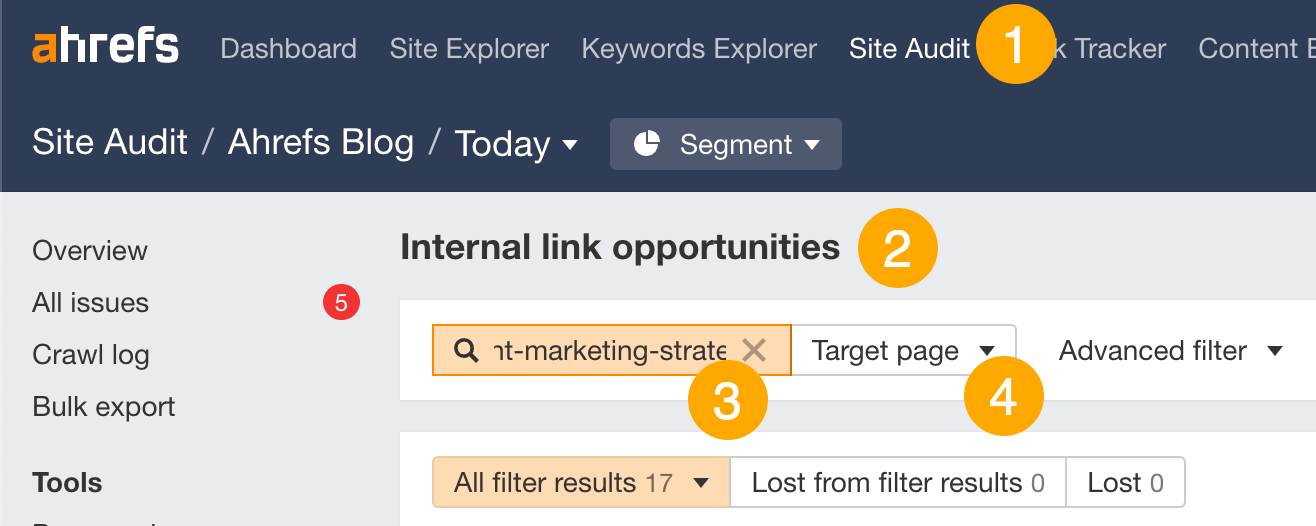
You’ll see a list of contextual internal linking opportunities.
For example, here’s a suggestion to link from our list of content marketing tools to our post about building a content marketing strategy with “content marketing strategy” as the anchor text.

Further reading
3. Rank for more long-tail keywords with FAQ sections
FAQ sections answer popular questions about a topic. Adding them to your page can help you rank higher for long-tail keywords.
For example, our guide to H1 tags answers how long they should be in the FAQ section.
As a result, it ranks high for a related long-tail search:
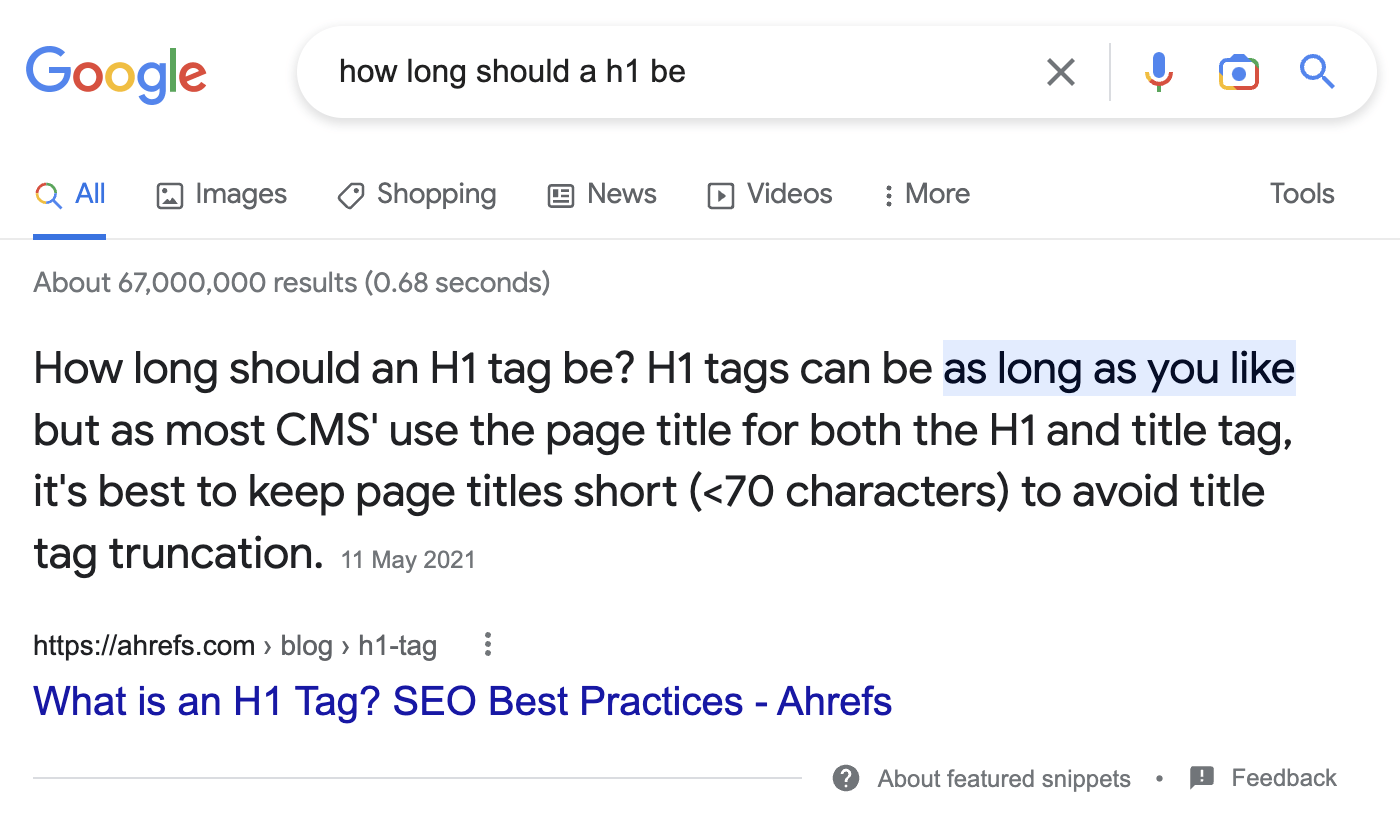
Here’s how to find frequently asked questions to answer:
- Go to Keywords Explorer- Enter your topic
- Go to the Matching terms report
- Toggle to “Questions”

4. Shortcut your way to position #1 by winning more featured snippets
Featured snippets are quick answers in search results that Google pulls from a page ranking in the top 10. You can often “shortcut” your way to the top of Google by winning them.
Here’s how to find the easiest opportunities:
- Go to Ahrefs’ Site Explorer- Enter your domain
- Go to the Organic keywords report
- Filter for keywords in positions #1–5
- Filter for keywords that trigger featured snippets “where target doesn’t rank”
- Look for keywords where your page is missing the answer, then add it
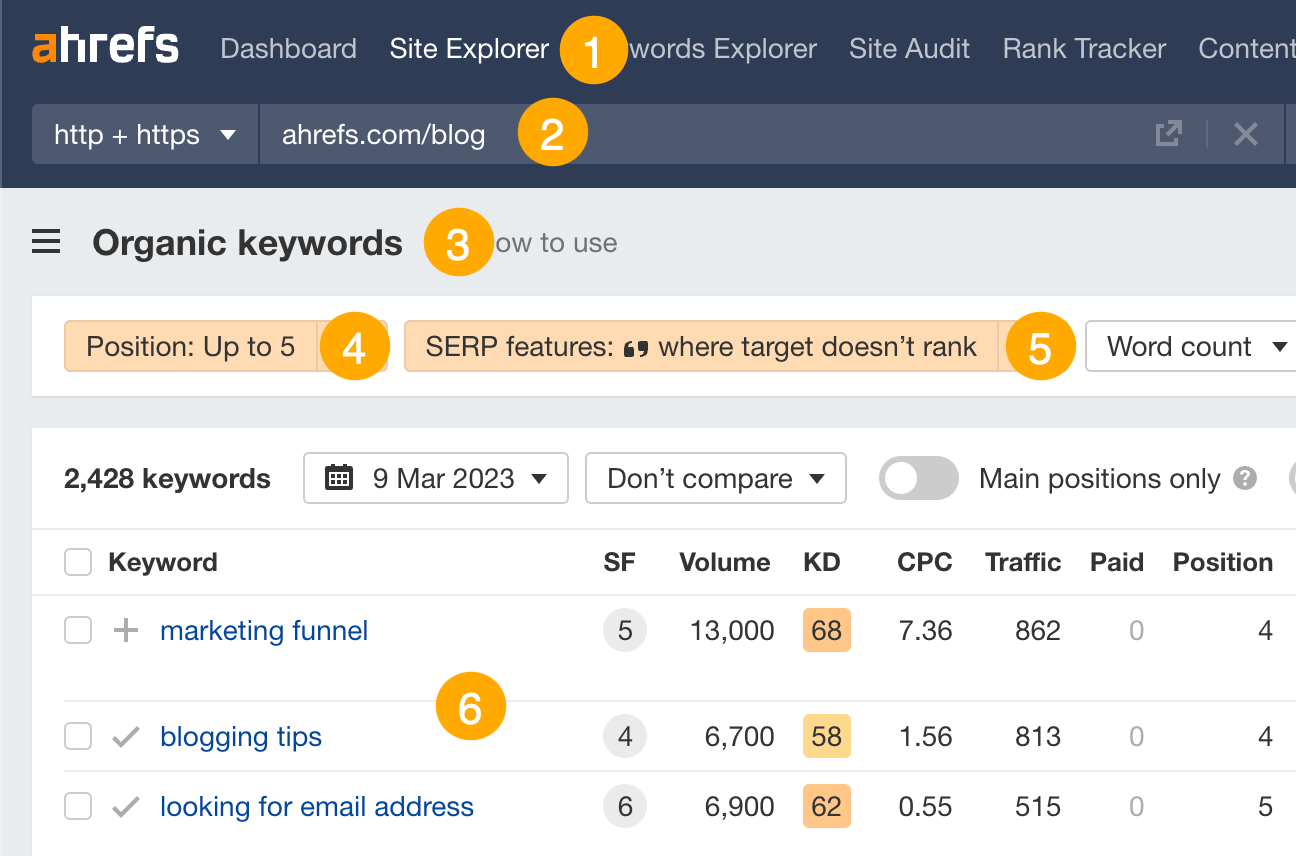
For example, the snippet for “google operators” is a definition:
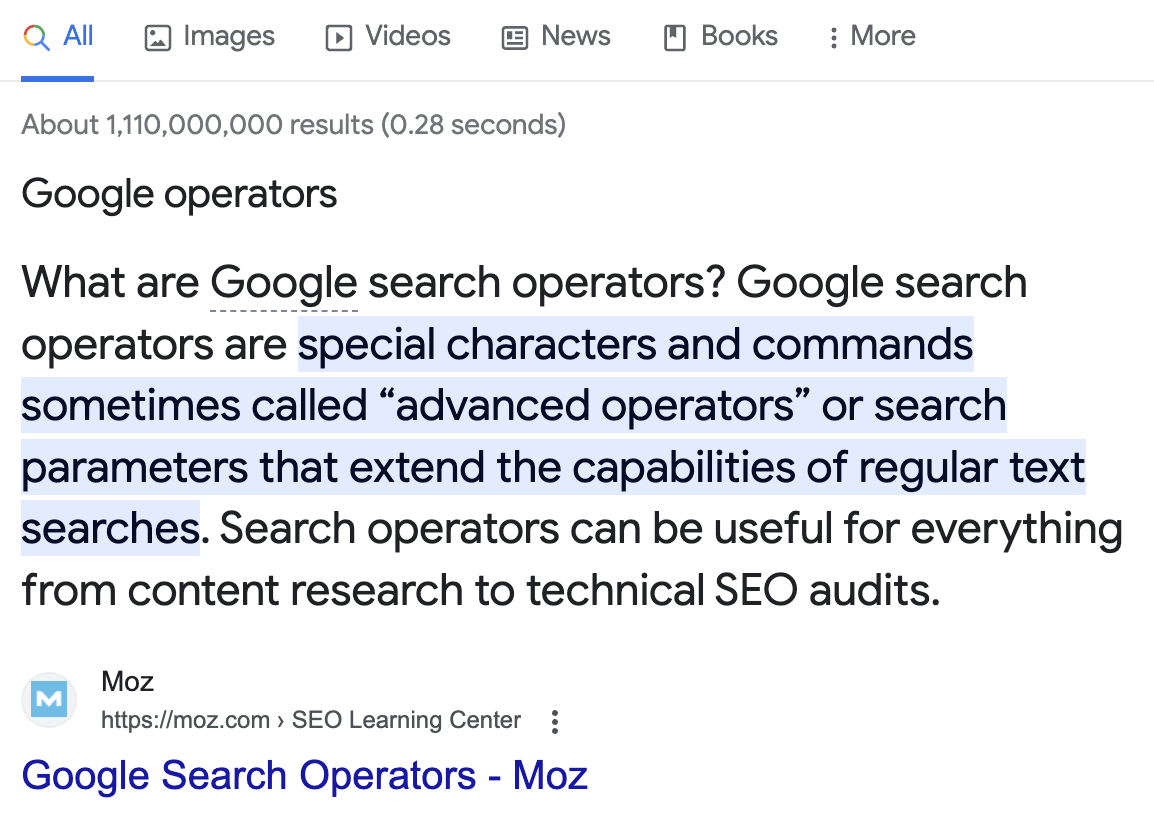
To stand a chance at winning the snippet, we’ll need to define the term on our page.
Further reading
5. Reclaim “authority” by fixing dead pages with backlinks
Backlinks can only help you rank higher if they point to working pages.
Here’s how to find dead pages with backlinks:
- Enter your site into Ahrefs’ Site Explorer- Go to the Best by links report
- Filter for pages with the HTTP code “404 not found”
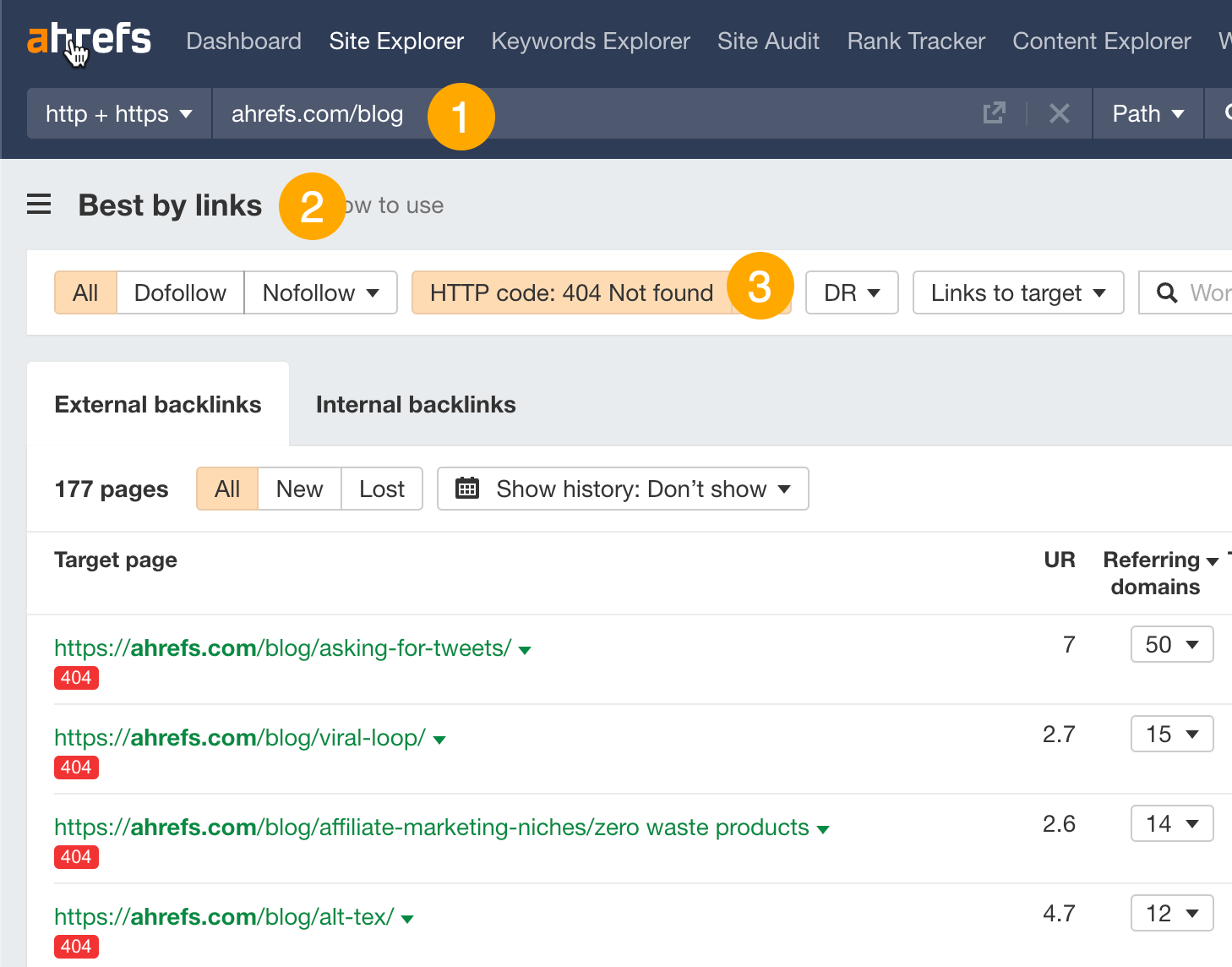
Here’s how to fix them:
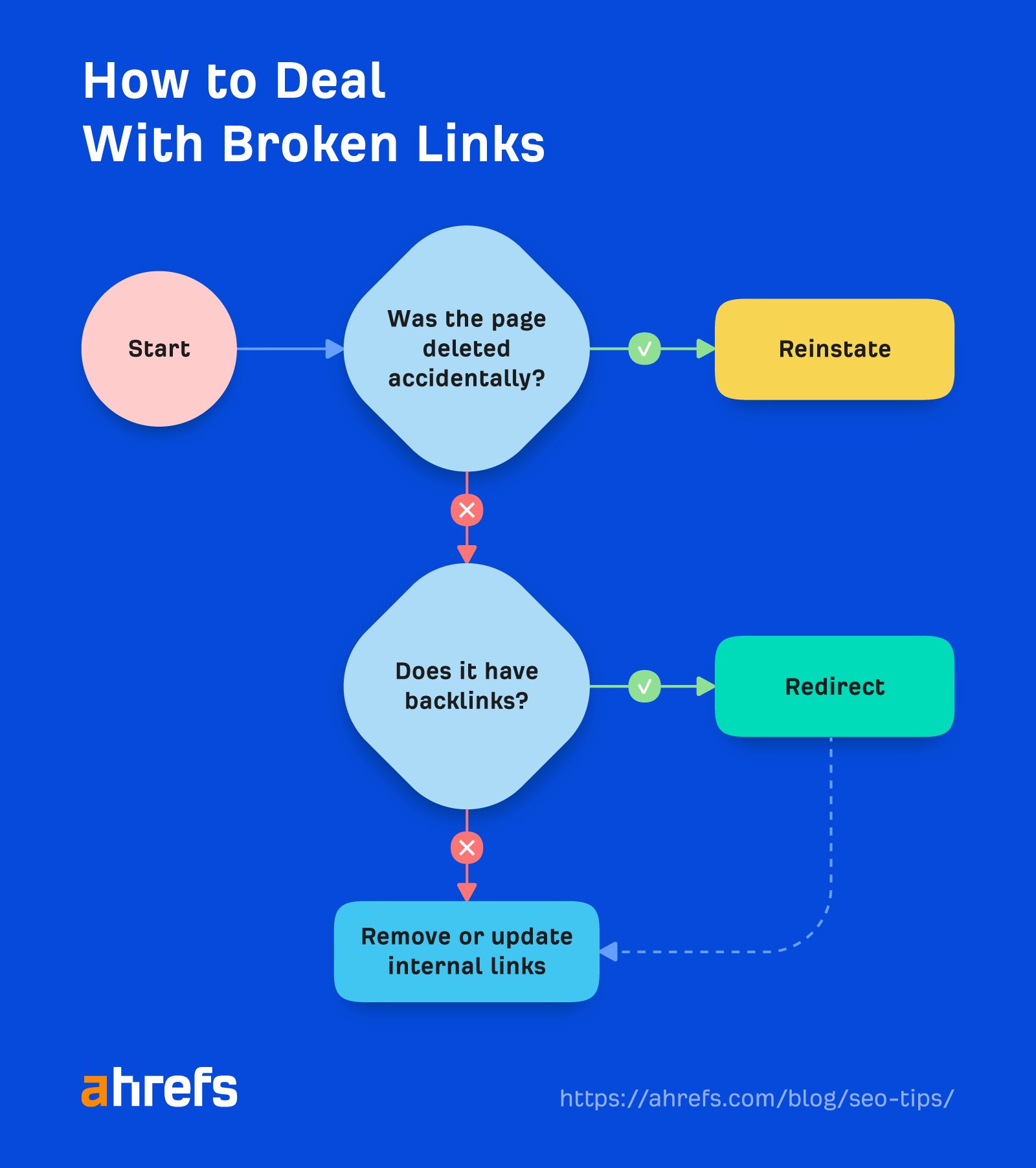
Further reading
6. Improve your chances of ranking by matching search intent
People are usually looking for one of these types of content when they search Google:
- Blog post- Interactive tool
- Video
- Category page
- Product page
To stand the best chance of ranking, you should align your content with search intent.
You can find this out by looking at the top-ranking pages.
For example, interactive tools dominate the first page for “days between dates.” But videos dominate the first page for “excel for beginners”:
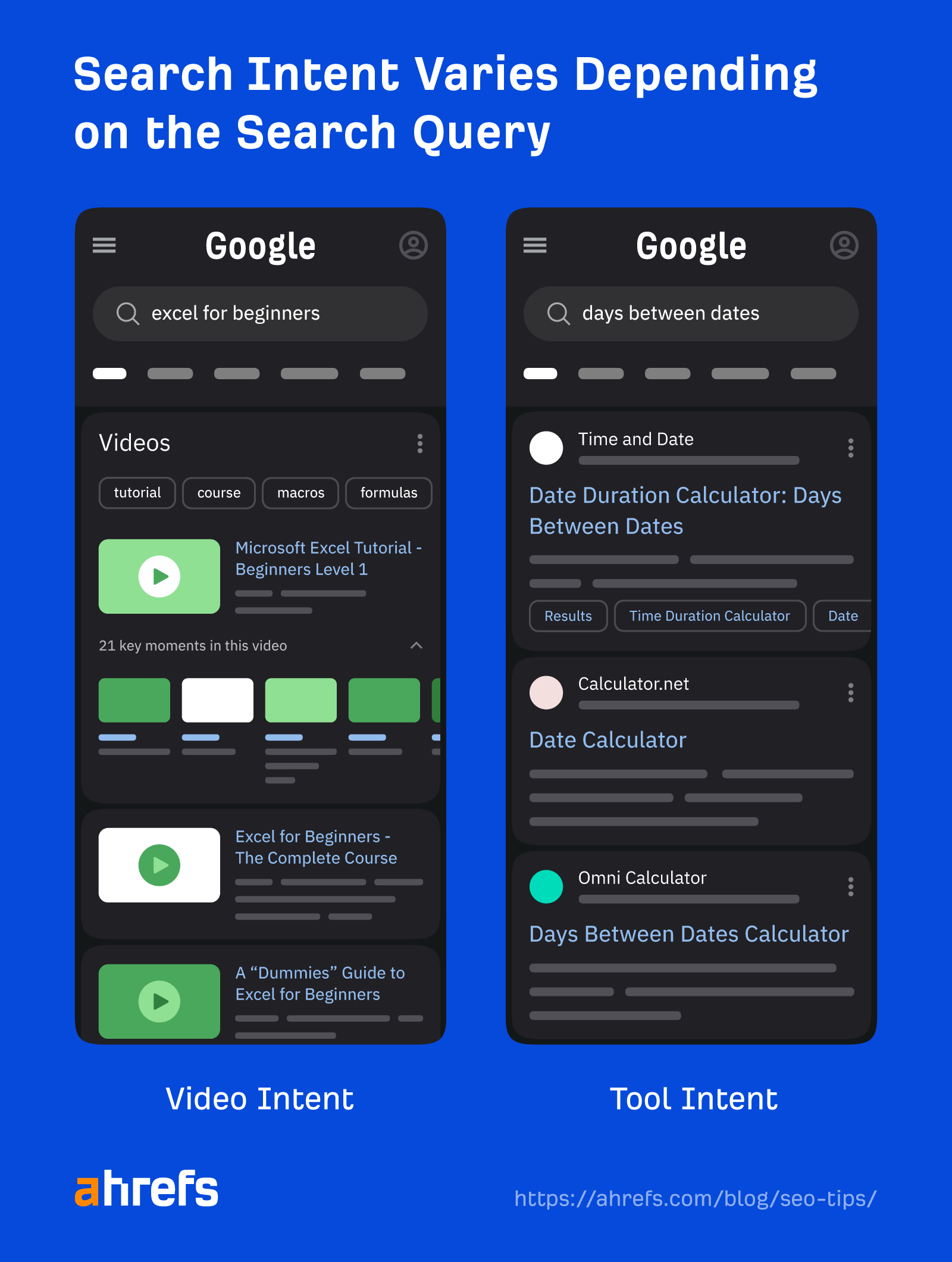
Further reading
7. Get more clicks by crafting compelling title tags
Title tags are a small but confirmed ranking factor, and Google often uses them for search snippets in the results.

Here’s our advice for writing a compelling one:
- Keep it short – Ideally under 70 characters.- Match search intent – Show that you have what searchers want.
- Be descriptive – Give them what they want.
- Don’t clickbait – Focus on overdelivering.
- Include your keyword – Or a close variation.
- Go to the Search results report
- Click the “Date” filter and select “Compare” mode
- Choose “Compare last 6 months to previous period”
- Hit Apply
- Click the “Pages” tab in the table
- Sort the results by “Clicks Difference” from low to high
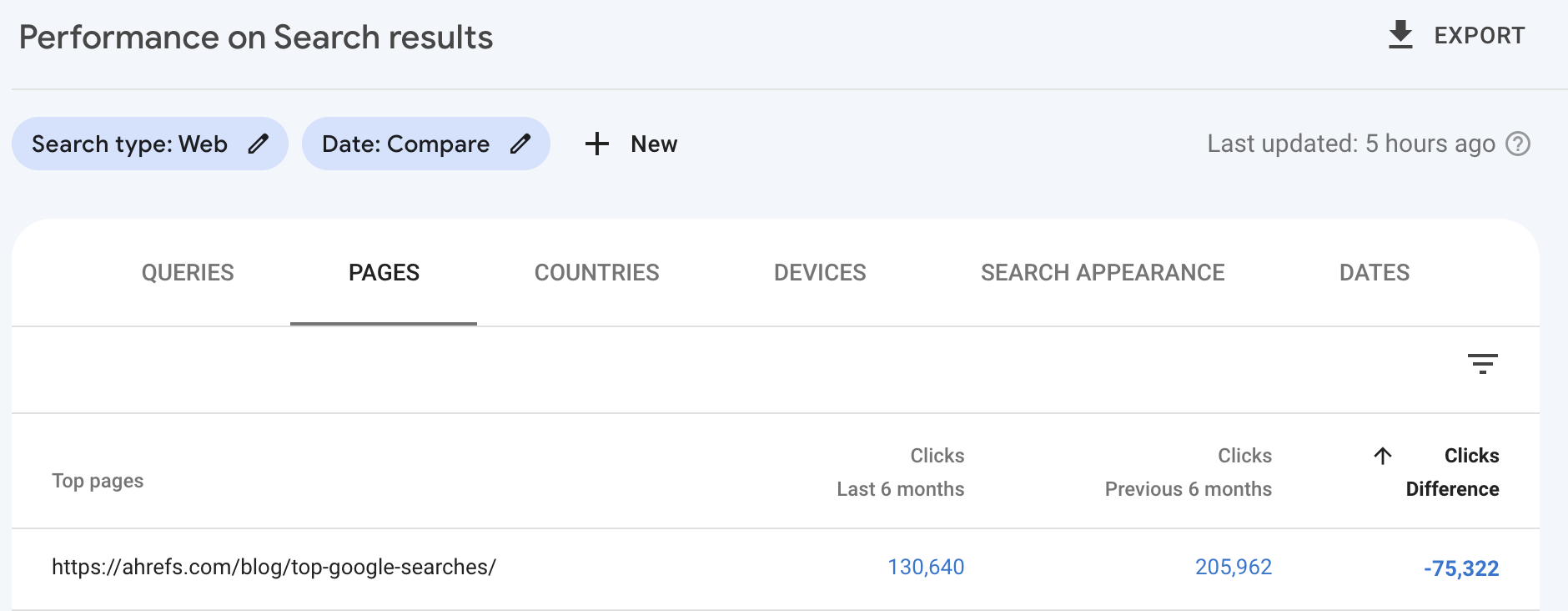
From there, look for pages where searchers would expect fresh information and update them.
For example, take our list of the top Google searches. This page’s rankings almost certainly declined because searchers want an up-to-date list.
Further reading
9. Get powerful backlinks with HARO
HARO is a service that connects journalists and sources.
Sign up as a source, and you’ll get daily emails with questions from journalists at various publications. Answer these, and you can earn mentions and backlinks that may help you rank higher in Google.
For example, here’s a journalist from Apartment Therapy (DR 87) requesting insights from landlords:
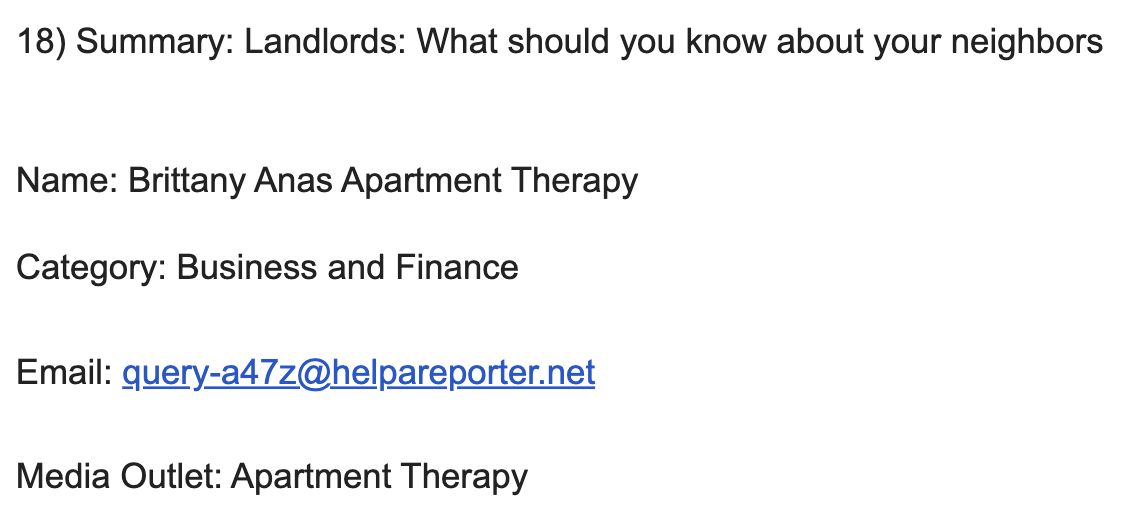
Here’s the link a landlord earned by replying to this request:
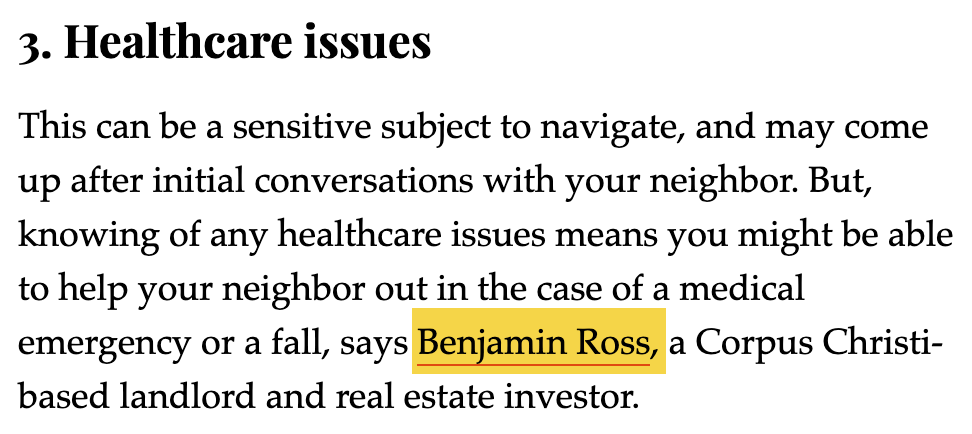
Further reading
10. Improve your Core Web Vitals to boost page experience
Core Web Vitals are speed metrics Google uses to measure user experience as part of its Page Experience signals.
They’re not a super strong ranking factor, but they can still impact rankings.
To check if your Core Web Vitals need work, use the Core Web Vitals report in Google Search Console or the Performance report in Ahrefs’ Site Audit.
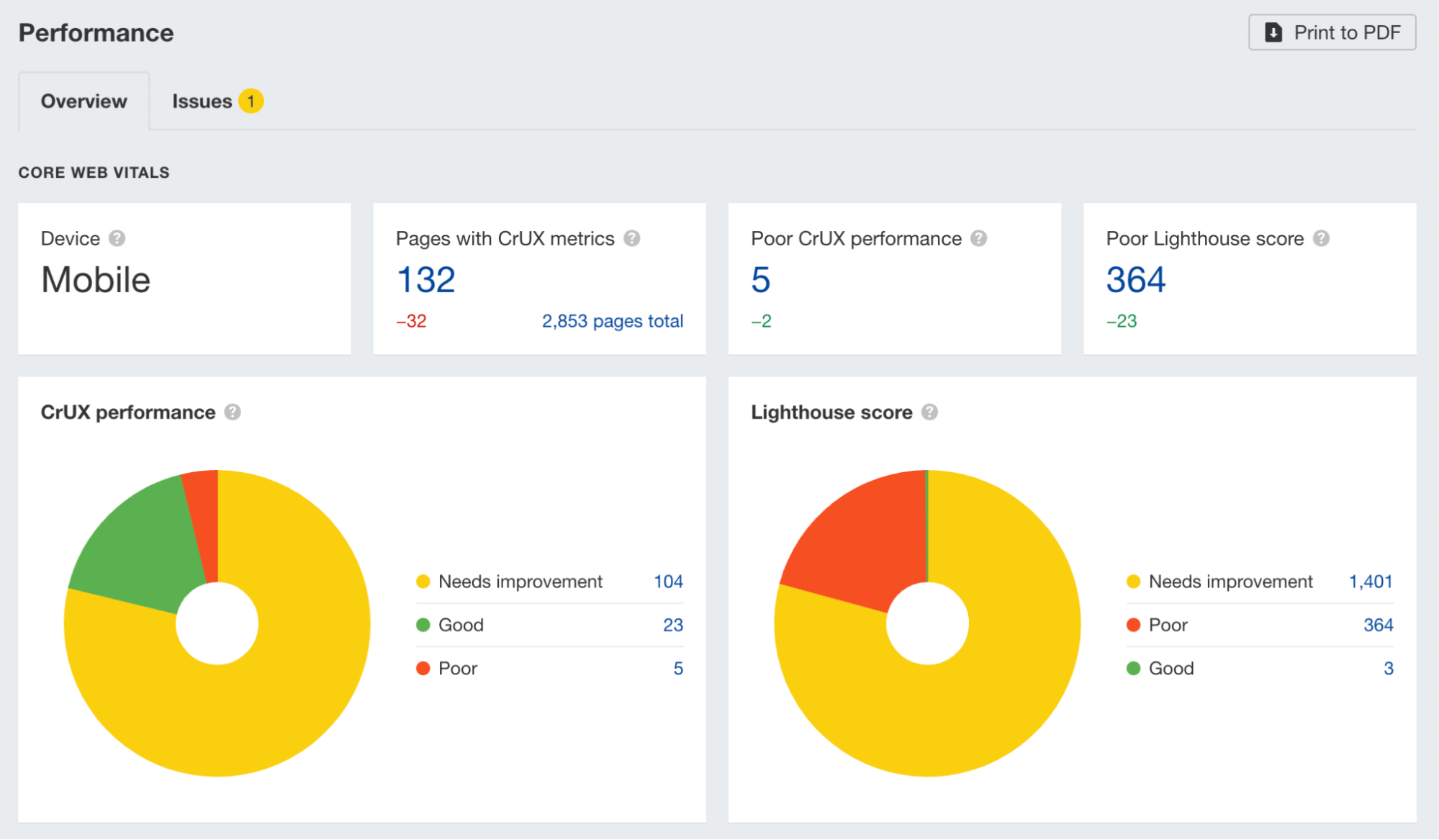
Further reading
Comments
Post a Comment